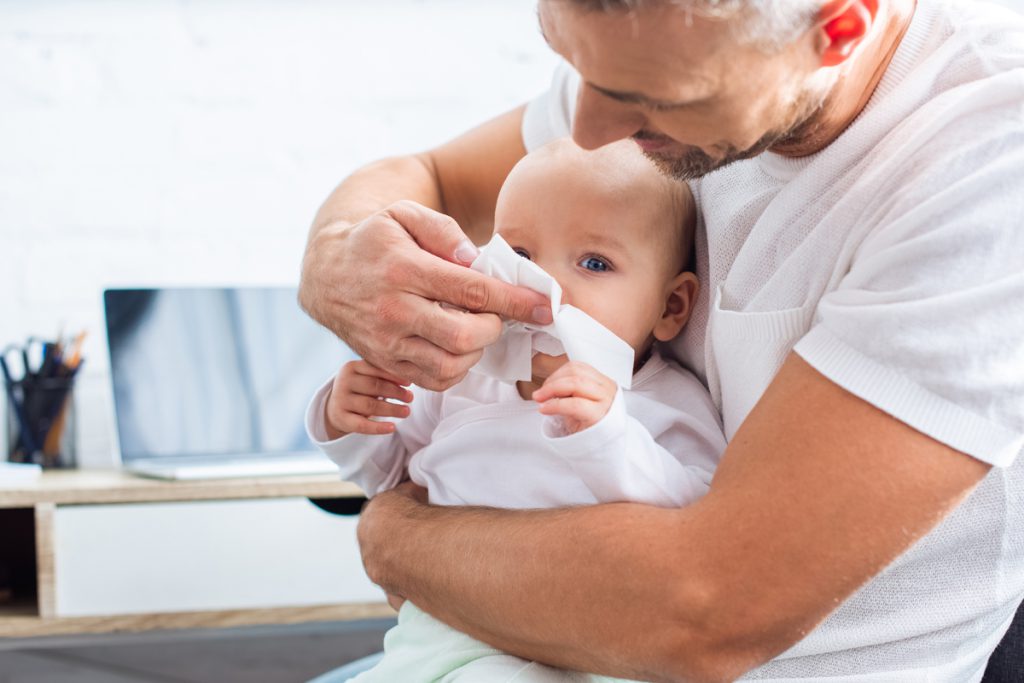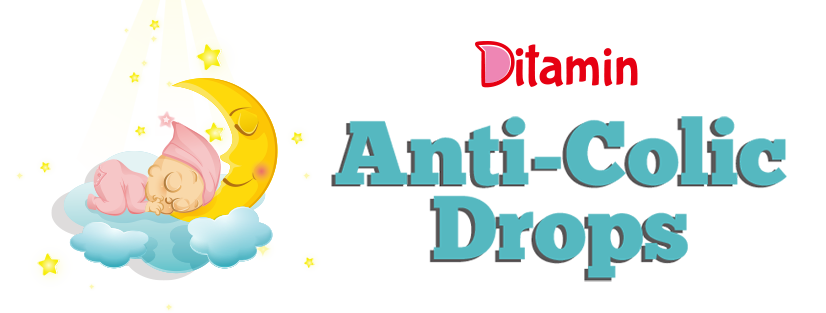
The worst cold that a parent experiences is not their own cold, but their baby’s first cold. Unfortunately, babies that are born in the fall and winter months often get their first cold earlier than a baby born during the spring and summer.
Is It Really a Cold?
It is such a helpless feeling for a new parent to see their baby with a runny nose, red rimmed eyes and a cough. While newborns routinely experience nasal congestion, a cold is different. With a cold the baby’s nose will run and have clear to colored mucous, and they will typically cough, just like all of us with a cold.
A baby over the age of 2 months may run a bit of a fever with their cold. A fever is defined as a temperature over 100.4 degrees. I am old school and still do rectal temperatures. I just don’t think the temporal and ear thermometers are accurate in little ones. The fever should not last more than a day or two and should respond to the appropriate dose of acetaminophen for your child’s weight.
Pay Attention to the Baby’s Breathing
The biggest concern for a baby with a cold is how they are breathing. While they may look pitiful with that gunky nose, how your child is breathing is most important thing to pay attention to. You need to look at your child’s chest while they are breathing and coughing to make sure that they are not having any respiratory distress. Undo their onesie or take off the pajamas and look at their chest. You do not want to see your child’s chest moving in and out (which is called retracting) or see that they are using their tummy (which is going up and down) to help them breathe. We call this “work of breathing”. The cough may sound horrible, but always look at the chest (the visual is as important as the audible). The chest should be nice and pink, even when they are coughing.
Helping A Baby With A Cold
Add a cool mist humidifier in their room at night to help keep the cough loose. For a gunky nose, the best thing to use is a nasal aspirator and saline drops. Clearing the nostrils is often one of the best ways to help your child breathe, which will also make it easier for them to take their bottle or breastfeed. A baby may not eat as well when they are sick (same as you and me) but make sure that they will take enough to stay hydrated and have wet diapers. Being sick at any age typically affects your appetite and as your child is feeling better their appetite will improve as well. The average cold takes 7- 10 days to resolve, so be patient. Getting past that first cold is a milestone for baby and parents but if you have any concerns about your child’s breathing, hydration or persistent fever, always call your doctor.

